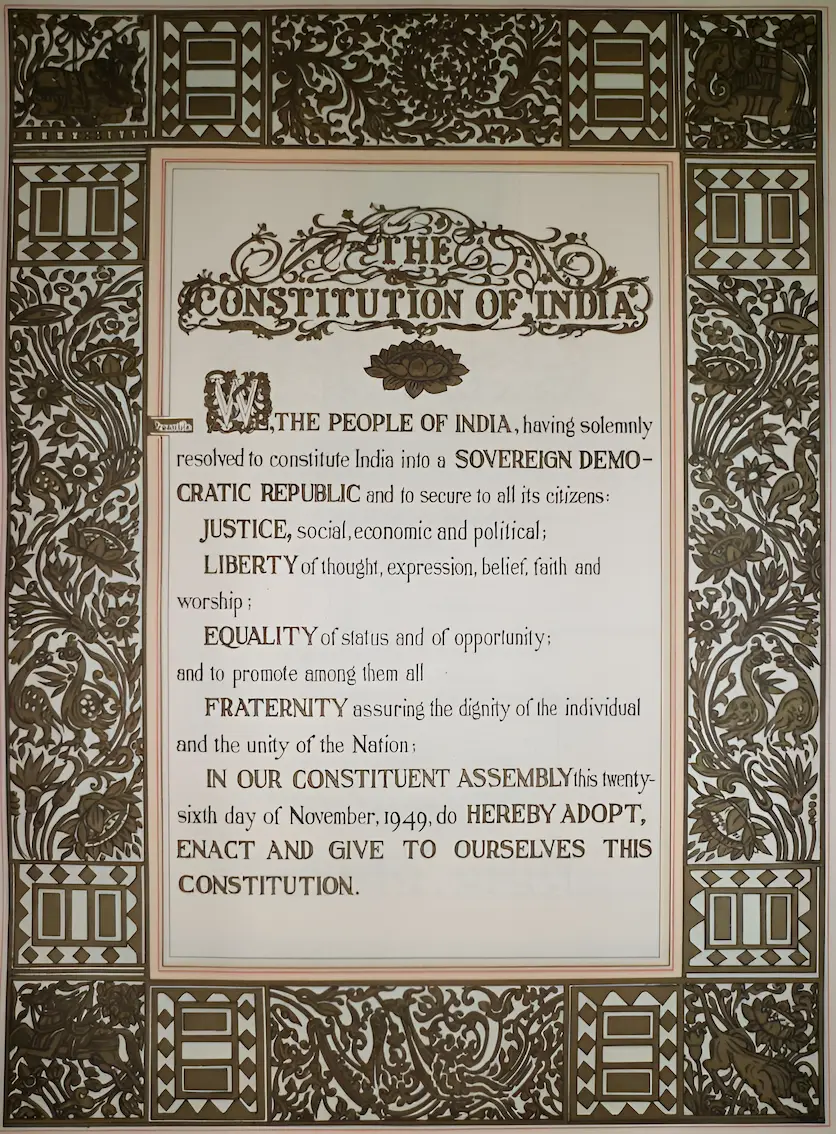
India’s founding fathers chose not to include the word ‘secular’ in the original Constitution
A Deliberate Omission: The Founders’ Vision of Secularism
The Missing Word Secular – When India’s Constitution was adopted in 1950, the word secular was conspicuously missing from the Preamble. This wasn’t due to negligence or lack of foresight, it was a conscious decision by the framers, including Dr. B.R. Ambedkar and Jawaharlal Nehru, who believed that secularism was already embedded in the spirit of the Constitution.
The Constituent Assembly debated the inclusion of the term. Eminent economist and socialist K.T. Shah proposed adding the words “secular, federal, and socialist” to Article 1, which defines India as a sovereign republic. Shah argued that explicitly stating these principles would prevent future misinterpretations. However, Ambedkar rejected the proposal, stating that the Constitution’s provisions already guaranteed religious freedom and equality, making the term redundant.
Ambedkar’s concern was that codifying secularism might restrict the state’s ability to intervene in religious practices that were discriminatory or regressive. He believed that the Constitution should empower the state to reform religious institutions when necessary, something a rigid definition of secularism might hinder.
Nehru, too, was cautious. While he championed secular democracy, he considered the term “secular” a superficial label if not backed by genuine practice. For him, secularism wasn’t about distancing the state from religion entirely, but about ensuring equal respect and protection for all faiths.
Secular in Spirit, Not in Script: The Indian Model
Unlike the Western model of secularism, which emphasizes a strict separation between church and state, India’s approach was more nuanced. The Indian state was never anti-religion, it was designed to be equidistant from all religions. This meant that while the state wouldn’t favor any one faith, it could engage with religious communities to promote social reform and justice.
This philosophy was reflected in several constitutional provisions:
- Article 25: Guarantees freedom of conscience and the right to freely profess, practice, and propagate religion.
- Article 15: Prohibits discrimination on grounds of religion, race, caste, sex, or place of birth.
- Article 26-28: Protect religious denominations’ rights to manage their own affairs, subject to public order and morality.
These articles collectively ensured that India functioned as a secular state in practice, even if the term wasn’t explicitly mentioned. The framers believed that actions mattered more than labels and that secularism should be demonstrated through governance, not slogans.
The 42nd Amendment: A Post-Emergency Insertion
It wasn’t until 1976, during the Emergency imposed by Prime Minister Indira Gandhi—that the word secular was officially inserted into the Preamble via the 42nd Amendment. Alongside “socialist,” this addition was made at a time when democratic institutions were under severe strain, and civil liberties were curtailed.
Critics argue that this move was politically motivated, aimed at reinforcing the Congress party’s ideological stance rather than reflecting a genuine constitutional necessity. RSS leaders and some constitutional scholars have since questioned the legitimacy of this amendment, calling it a “travesty of justice” and a “sacrilege to the spirit of Sanatana”.
Vice President Jagdeep Dhankhar and other political figures have echoed this sentiment, suggesting that the inclusion of “secular” and “socialist” during a period of suspended democracy deserves re-evaluation. They argue that the original framers intentionally left out these terms to preserve flexibility and avoid ideological rigidity.
Despite the controversy, the 42nd Amendment has remained intact, and India continues to define itself as a “sovereign, socialist, secular, democratic republic.” Yet, the debate over what secularism truly means in the Indian context remains unresolved.
Conclusion:
The absence of the word secular in India’s original Constitution wasn’t a flaw it was a reflection of the framers’ belief in substance over symbolism. For Ambedkar and Nehru, secularism was not about declarations but about ensuring justice, equality, and dignity for all citizens, regardless of faith.
Stay updated with the latest news on Rapido Updates. Keep yourself updated with The World, India News, Entertainment, Market, Automobile, Gadgets, Sports, and many more